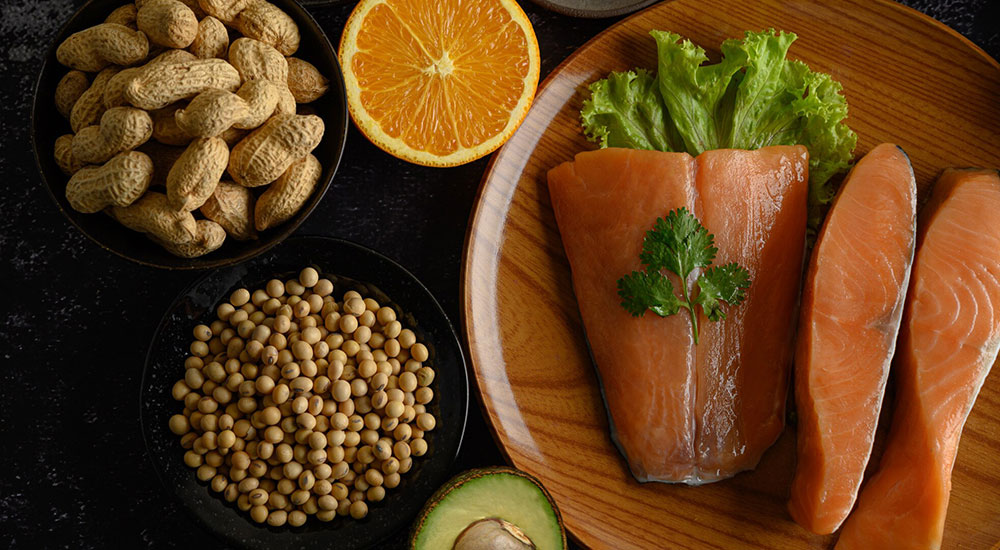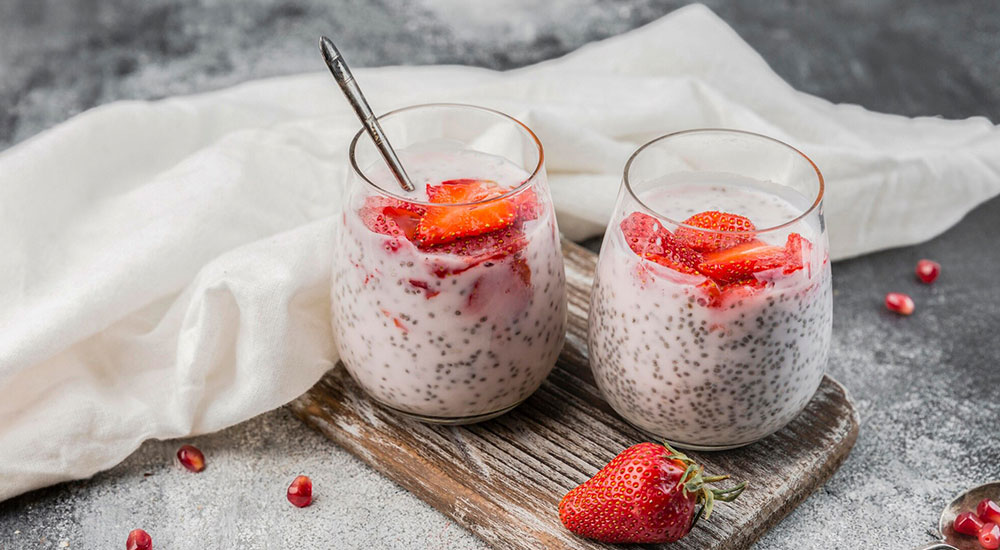Feeling down lately? You’re not alone! Did you know that what you eat can significantly impact your mood? It’s true! In fact, a study published in the Journal of Nutrition found that individuals with higher omega-3 intake had a 33% lower risk of depression. That’s where omega-3 foods come in to save the day (and your mood)! In this article, we’ll explore the fantastic world of omega-3-rich foods that can help boost your spirits and keep you feeling your best. So, let’s dive in and discover how you can eat your way to happiness!
Understanding Omega-3s and Their Impact on Mood
Omega-3 fatty acids are essential nutrients that play a crucial role in our overall health, particularly when it comes to our mood and mental well-being. But what exactly are omega-3s, and how do they affect our brain function?
Omega-3s are a type of polyunsaturated fat that our bodies can’t produce on their own, so we need to obtain them through our diet. There are three main types of omega-3s: EPA (eicosapentaenoic acid), DHA (docosahexaenoic acid), and ALA (alpha-linolenic acid). EPA and DHA are primarily found in fish and seafood, while ALA is found in plant-based sources.

These fatty acids play a crucial role in brain function by helping to build and maintain cell membranes in the brain. They also influence the production and function of neurotransmitters, which are chemical messengers that regulate our mood, emotions, and cognitive processes.
Research has shown a strong link between omega-3 deficiency and mood disorders such as depression and anxiety. When our brains don’t have enough omega-3s, it can lead to imbalances in neurotransmitter function and inflammation, potentially contributing to mood disturbances.
Top Omega-3-Rich Fish for Mental Wellness
If you’re looking to boost your omega-3 intake through seafood, several fish stand out as excellent sources:
Salmon is often referred to as the king of omega-3 foods, and for good reason. It’s packed with both EPA and DHA, making it an excellent choice for supporting brain health and mood regulation.
Mackerel is another powerhouse of nutrients, including omega-3s. This oily fish is not only rich in EPA and DHA but also provides other essential vitamins and minerals that contribute to overall health.
Don’t overlook the smaller fish like sardines and anchovies. These tiny fish are big on benefits when it comes to omega-3 content. They’re also more sustainable options and typically lower in mercury compared to larger fish.
Plant-Based Omega-3 Sources for Vegetarians and Vegans
For those following a plant-based diet, there are still plenty of ways to incorporate omega-3s into your meals:
Flaxseeds and chia seeds are often referred to as omega-3 superseeds. They’re rich in ALA, which the body can convert to EPA and DHA, albeit less efficiently than direct sources of these omega-3s.
Walnuts, with their brain-like shape, are another excellent source of plant-based omega-3s. They make a great snack or addition to salads and baked goods.
For those looking for ocean-derived omega-3s without consuming fish, algae and seaweed are excellent options. In fact, fish get their omega-3s from consuming algae, so you’re going straight to the source!
Hemp seeds are not only a complete protein but also provide a good amount of omega-3s. They have a mild, nutty flavor that works well in many dishes.
Incorporating Omega-3 Foods into Your Daily Diet
Making omega-3-rich foods a regular part of your diet doesn’t have to be complicated. Here are some ideas for each meal of the day:
For breakfast, try making smoothie bowls with chia seeds or flaxseeds, or prepare a chia pudding the night before for a quick and easy morning meal.
Lunch can include salmon salads or dishes topped with walnuts for an omega-3 boost. Even adding a sprinkle of hemp seeds to your usual lunch can make a difference.
For dinner, consider recipes like mackerel with roasted vegetables. This not only provides omega-3s but also other essential nutrients from the vegetables.
When it comes to snacks, create your own trail mix with omega-3-rich nuts and seeds. This makes for a satisfying and nutritious option between meals.

Omega-3 Supplements: When and How to Use Them
While getting omega-3s from whole food sources is ideal, supplements can be a useful addition for some people. There are various types of omega-3 supplements available, including fish oil capsules, krill oil, and algae-based supplements for those following a plant-based diet.
The recommended dosage for mood enhancement can vary, but many studies have used doses ranging from 1 to 2 grams of combined EPA and DHA per day. However, it’s essential to note that more isn’t always better, and high doses can have potential side effects.
Some people may experience digestive discomfort or a fishy aftertaste with omega-3 supplements. In rare cases, they can also interact with certain medications, particularly blood thinners.
Before starting any new supplement regimen, it’s crucial to consult with a healthcare professional. They can help determine if supplements are necessary and what dosage might be appropriate for your individual needs.
Lifestyle Factors That Enhance Omega-3 Benefits for Mood
While omega-3s can play a significant role in mood regulation, they work best when combined with other healthy lifestyle factors:
Regular exercise is a natural mood booster that can complement the effects of omega-3s. Physical activity stimulates the production of endorphins, often referred to as “feel-good” hormones.

Stress management techniques such as meditation, deep breathing exercises, or yoga can help reduce stress levels, which in turn can support better mood regulation.
Adequate sleep is crucial for mental health. Lack of sleep can negatively impact mood and cognitive function, potentially counteracting the benefits of omega-3s.
Lastly, don’t underestimate the power of social connections. Strong relationships and social support play a significant role in mood regulation and overall mental well-being. Combining a diet rich in omega-3s with a fulfilling social life can have a synergistic effect on your mood and mental health.
Conclusion
There you have it, folks! A smorgasbord of omega-3 foods that can help elevate your mood and keep those blues at bay. By incorporating these nutrient-rich options into your daily diet, you’re not just nourishing your body – you’re feeding your happiness! Remember, consistency is key when it comes to reaping the mood-boosting benefits of omega-3s. So why not start today? Your future, happier self will thank you! Don’t forget to consult with a healthcare professional before making significant changes to your diet or starting any supplements. Here’s to a brighter, more joyful you in 2024 and beyond!




